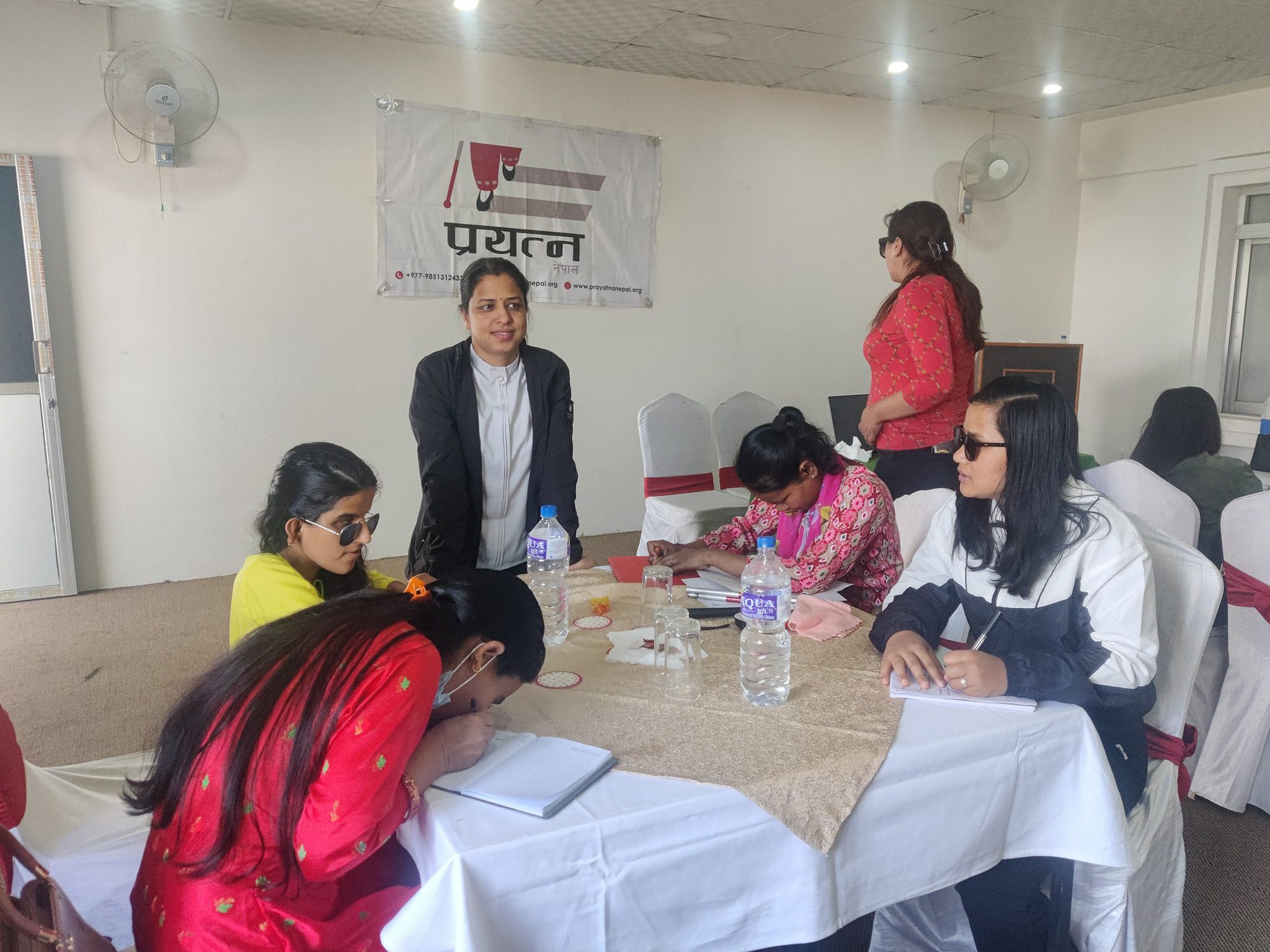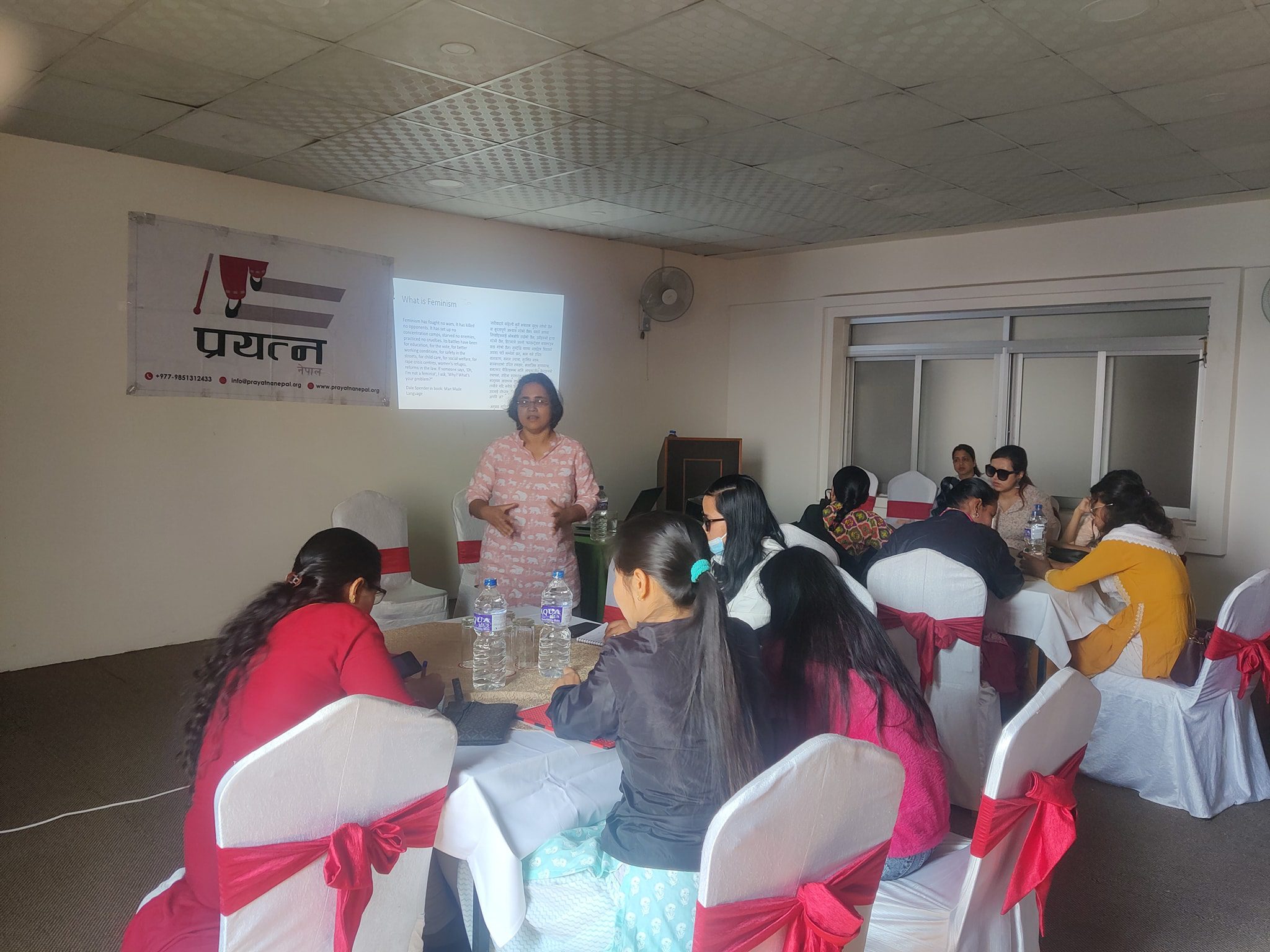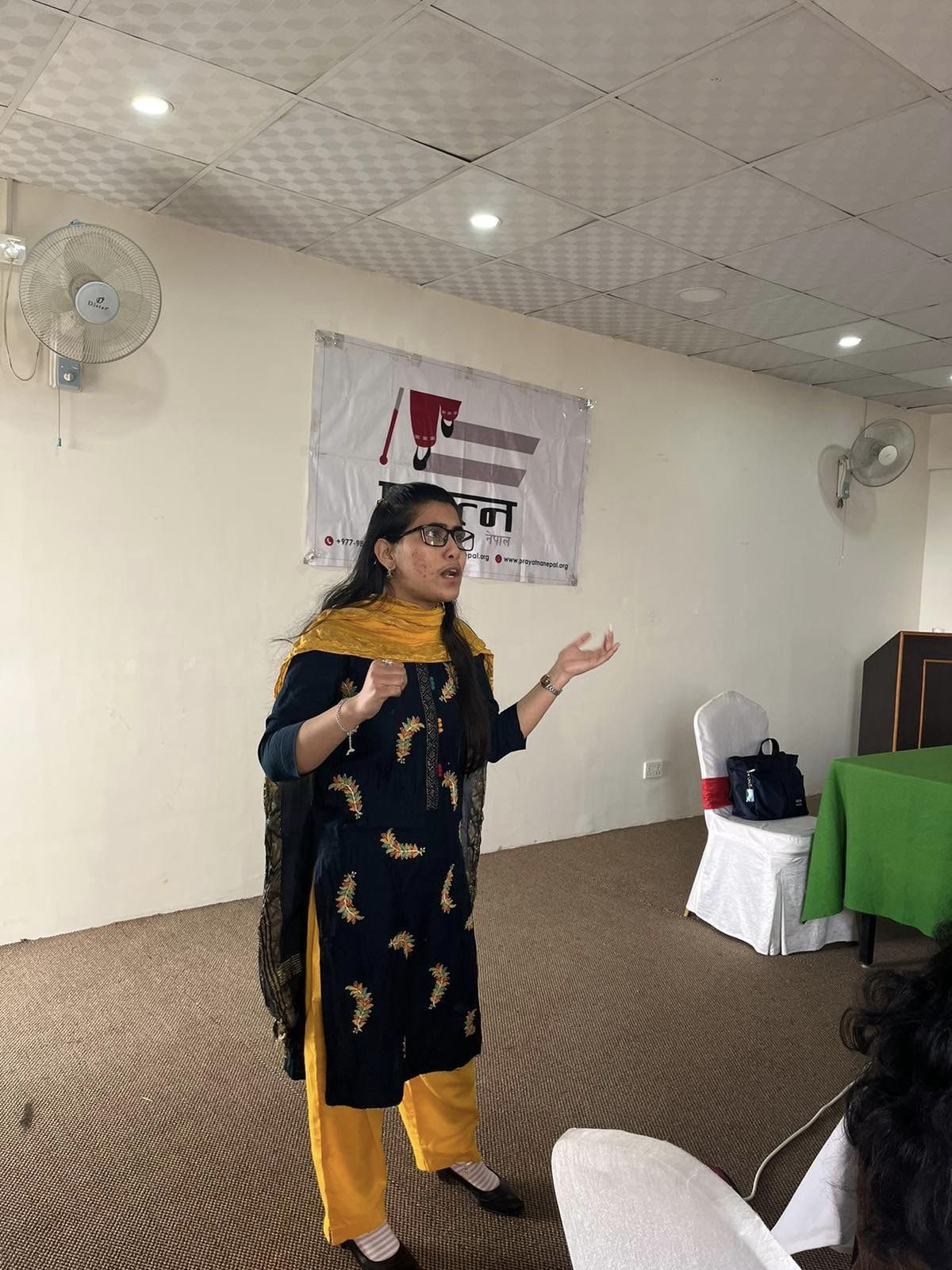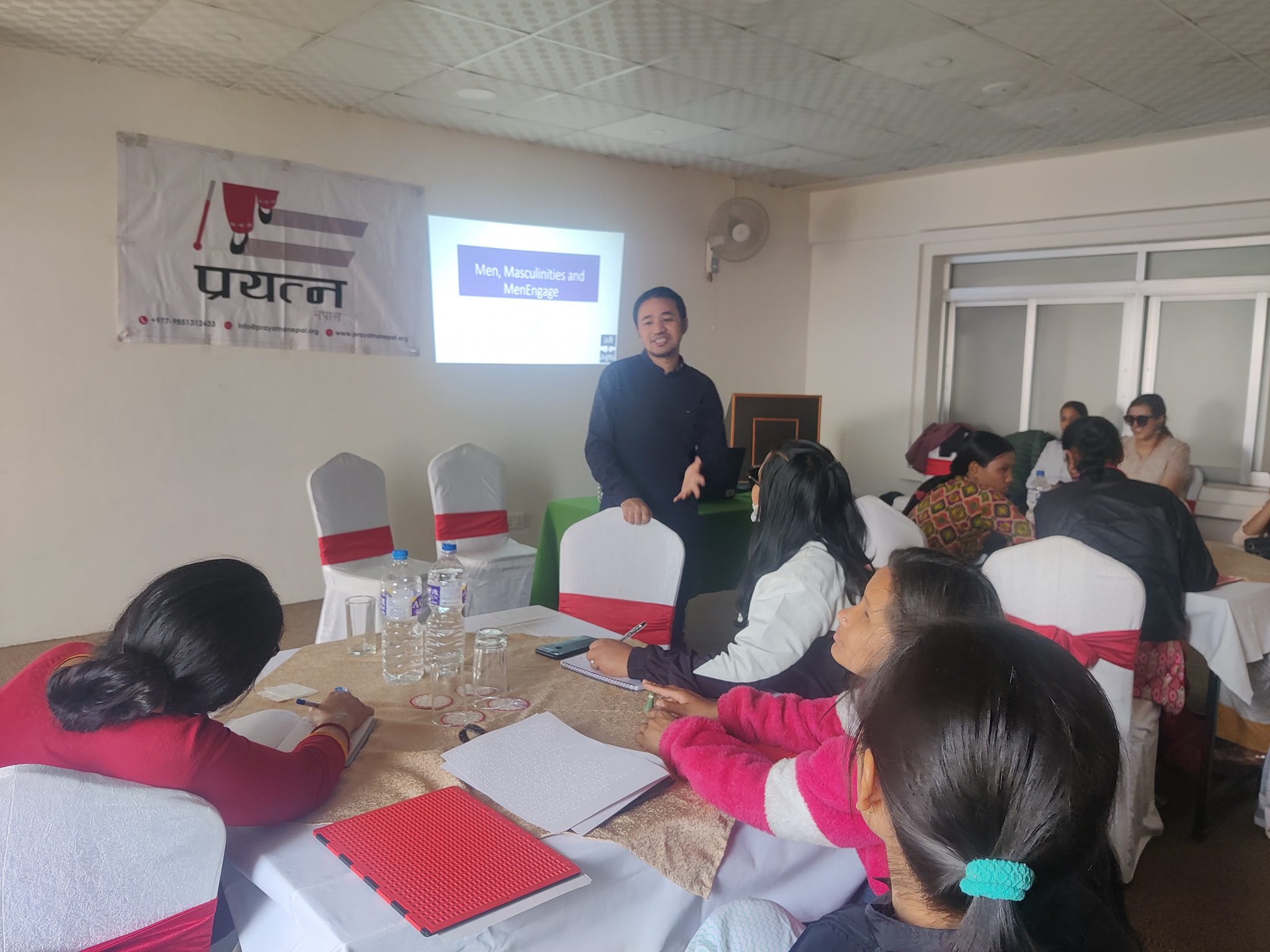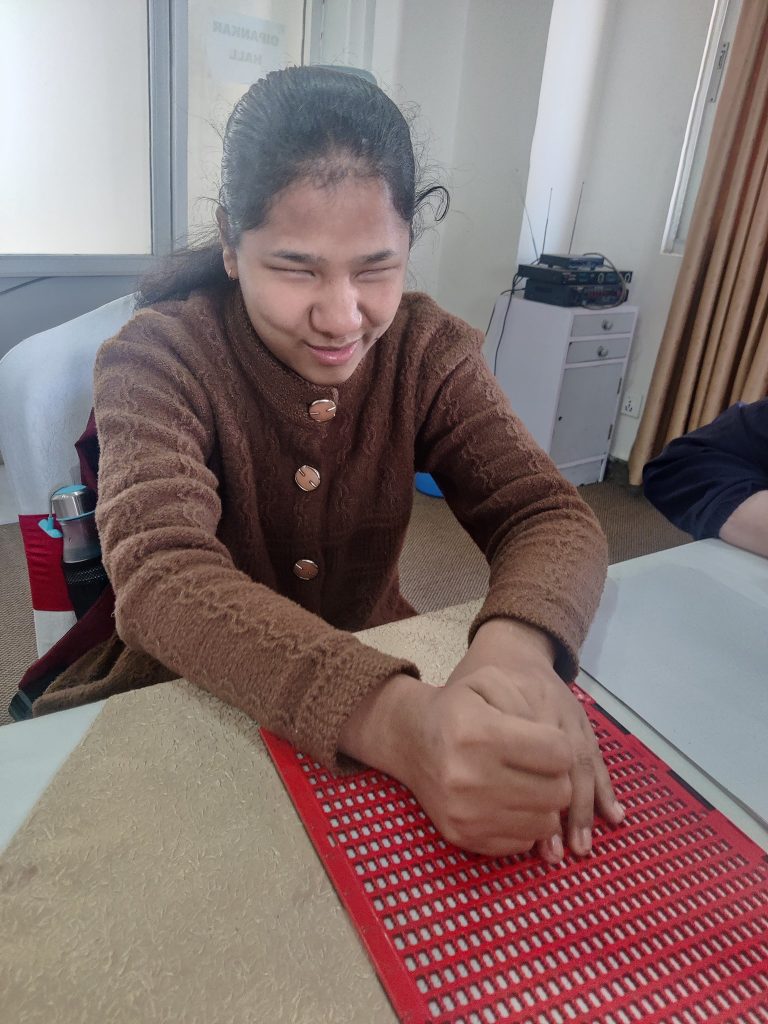
Prayatna Nepal is the self-help organization working for empowering the living condition women and girls with visually impairments. The organization is established by the composition of both women with and without visually impairments. Among the seven board members, five of them (71%) are with visually impairments where the organization is led by the totally blind woman as the Chairperson. This idea of inclusion in the organizational structure is to ensure equal efforts from every individual with better understanding in improving social, cultural, economic, and political aspects of lives of women with disabilities.
The first day of feminism training was started by Ms. Sarita Lamichhane, chairperson of Prayatna Nepal. She highlighted the objectives of the training and introduced the facilitator of the first session, Ms. Neeti Aryal Khanal, who is an active feminist and a lecturer of Sociology in Patan Multiple Campus. Ms. Neeti started her session with introduction where all the participants were asked to mention their names, disability and if/not they consider themselves a feminist. She proceeded with her content as soon as the introduction round was over. Her session was mostly in line with history, waves and theories/types of feminism. Her session was equally divided into theory where she explained and presented her contents and practical where she asked the participants to also engage in discussions and sharing. She made the participants form smaller groups to discuss and share their thoughts on which type of feminism they mostly relate to and why. Most of the participants shared that they like the notion of intersectionality feminism which includes the aspect of them being a female who have disability and belong to diverse ethnicity, culture, social class, education. The participants later also shared that they were very happy to learn basics about feminism.
The first half of the day was wrapped up by Ms. Sarita Lamichhane, who shared about the values of feminism. She further clarified the concept of feminism and highlighted that patriarchy is the root of discrimination against women. She mentioned that women and girls can also have patriarchal attitude and thoughts that is derived from patriarchy which is deeply rooted in our society for a long time. Later, the last session of the day was taken by Mr. Sanjog Thakuri, founding chairperson of DajuVai. His session was based on masculinity and its relation and differences from feminism. On his session, he discussed about differences of gender roles, societal expectations on roles and characteristics of men and its affect on feminism. He also talked about types of masculinity and the context of patriarchy in Nepal. He also mentioned that men can have feminine qualities while women can have masculine qualities depending upon the situations they are subjected to. He highlighted that men can be feminist, and they can contribute by engaging as ally or supporter, target groups, or change makers to achieve substantive equality.
On the second day, the training started with participants sharing what they learnt on the previous day. Then Ms. Jalasa Sapkota started a session on power, hierarchy, and privilege. Her session was mostly based on patriarchy, privilege, and power structure. She initially shared how patriarchy can have an impact on various phases and aspects of our lives. She focused the discussion on the impact of patriarchy on women that include their education, occupation, sexuality, and overall family life. The session was interactive where participants shared their own experiences and opinions on how their lives have been affected by the patriarchal attitude of society. She also mentions that experiences and struggles of people with disabilities intersect with the feminist movement, in which she explained about representation, access and intersectionality. In this section, she described that the intersection of feminism and disability highlights the importance of recognizing and addressing the unique experiences and needs of people with disabilities within the broader struggle for gender equality. The second session was taken by Ms. Sarita Lamichhane where she mentioned different policies and provisions related to people with disabilities regarding health, education, social security, etc. She also highlighted that there are many good policies and programs for women with disabilities, but the implementation process is very weak. She also encouraged the participants to advocate for their own rights. She mentioned that by supporting feminism, we are supporting gender equality and a future free of gender discrimination and stereotypes. After her session, she collected feedback and commitment from the participants and asked the participants to share what they liked and/or disliked in this training and their future expectations from Prayatna Nepal. At last, Ms. Chanda Chaudhary (Executive Board Member of Prayatna Nepal as well as the training participant) concluded the program with her closing remarks.
